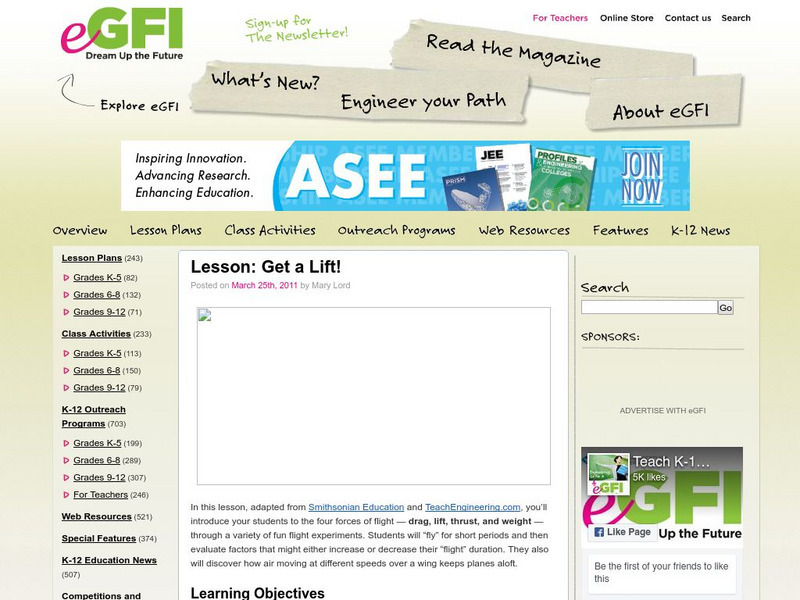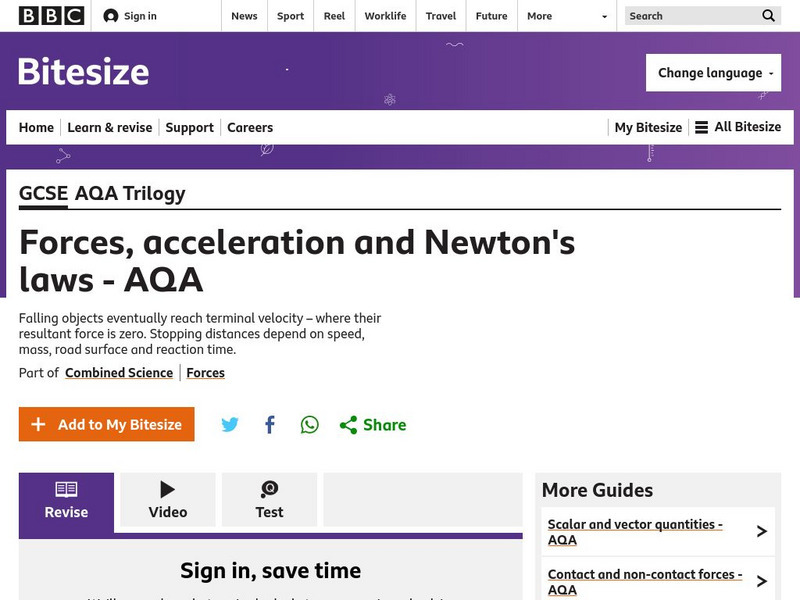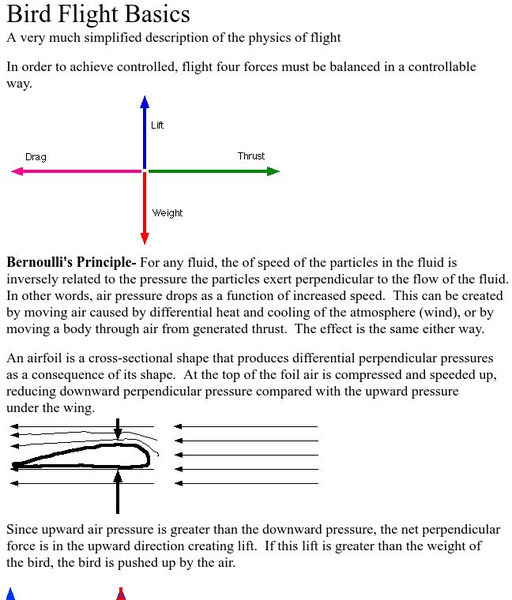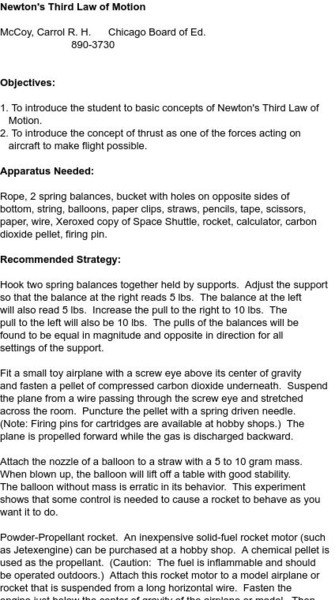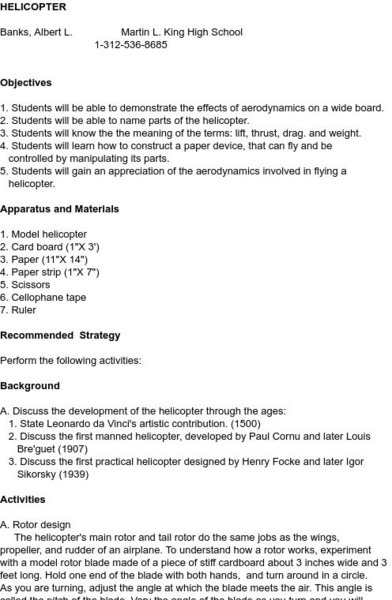TeachEngineering
Teach Engineering: What Makes Airplanes Fly?
Learners begin to explore the idea of a force. To further their understanding of drag, gravity and weight, they conduct activities that model the behavior of parachutes and helicopters. An associated literacy activity engages the class...
TeachEngineering
Teach Engineering: Rocket Me Into Space
One of the exciting challenges for engineers is the idea of exploration. This lesson looks more closely at Spaceman Rohan, Spacewoman Tess, their daughter Maya, and their challenges with getting to space, setting up satellites, and...
TeachEngineering
Teach Engineering: Blast Off
Rockets need a lot of thrust to get into space. In this instructional activity, young scholars learn how rocket thrust is generated with propellant. The two types of propellants are discussed and relation to their use on rockets is...
TeachEngineering
Teach Engineering: Learn to Build a Rocket in 5 Days or Your Money Back
In this lesson, learners discover the entire process that goes into designing a rocket for any customer. In prior lessons, students learned how rockets work, but now they learn what real-world decisions engineers have to make when...
Other
E Gfi: Lesson: Get a Lift
In this instructional activity, students are introduced to the four forces of flight-drag, lift, thrust, and weight-through a variety of fun-filled flight experiments. Students will "fly" for short periods and then evaluate factors that...
CK-12 Foundation
Ck 12 Exploration Series: Simulations: What Makes an Airplane Stall?
[Free Registration/Login Required] Learn about the science behind flying an airplane and play this simulation game to see the effects of wing profile, thrust, angle of attack, and airplane size.
BBC
Bbc: Gcse Bitesize: Forces, Acceleration and Newton's Laws Aqa
This lesson focuses on Newton's First Law: an object remains in the same state of motion unless a resultant force acts on it. If the resultant force on an object is zero, this means: a stationary object stays stationary; a moving object...
CK-12 Foundation
Ck 12: Physics Simulation: Pirate Ship
[Free Registration/Login Required] Learn about Newton's 3rd Law, and how the concept of the 'force pair' allows us to understand interactions between objects using this interactive simulation. A PDF worksheet and a video tutorial are...
South Carolina Educational Television
South Caroline Etv Commission: Drag | Nasa Online
If you have ever put your hand outside the window of a moving car, you have experienced drag. Watch the simulation.
PBS
Pbs Learning Media: Rocket Sled
Explore the relationship between thrust, drag, friction, weight, and acceleration in this interactive simulation and see if you can make the sled stop on a particular rock
Other
Pacifier Online: Bird Flight Basics
This site provides a simplified explanation of the physics of flight. Site provides information about lift, drag, weight, thrust, Bernoulli's Principle, and much more.
Other
Footprints Science: Forces
A simple demonstration using a person on a bicycle to illustrate how thrust and resistance balance to achieve a constant rate of speed.
University of Minnesota
The Physics of Flight: Bernoulli's Principle
Discusses air flow around the wing of a plane and its effect upon the lift and drag forces. Focuses on the application of Bernoulli's principle to wing design and the subsequent airfoil shapes.
Science and Mathematics Initiative for Learning Enhancement (SMILE)
Smile: Third Law of Motion
This Illinois Institute of Technology site is a lesson plan and lab that utilizes a toy rocket to investigate Newton's third law. Includes directions and practical applications.
Science and Mathematics Initiative for Learning Enhancement (SMILE)
Smile: Lab Activity: Helicopter
The Illinois Institute of Technology lets young scholars investigate the aerodynamics of a helicopter, focusing on the variables which effect the lift, thrust, drag, and weight. Students investigate the effects of aerodynamics on a wide...
NASA
Nasa: Beginner's Guide to Aerodynamics
This site from NASA discusses application of Newton's first law of motion to airplane motion. Includes a graphic and an accompanying explanation.






